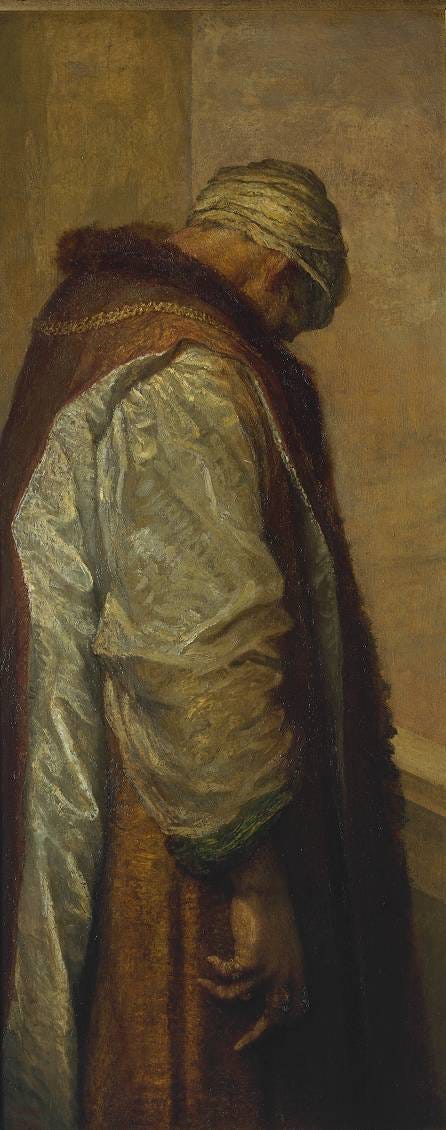
🥣 Cereal Economics
The day we pay for all our bridges, roads, and beautiful natural parks. This is my dream, so don’t tell me where my money is actually going.
Anywhooo, with it being tax season, you probably have a good idea of how much money you said you made last year. But do you remember the good ole days of youth when the government used to pay you back? You told Uncle Sam what you made, and he said, “Oh, my poor little nephew, you’re so sweet to offer, but you can just keep your piggy-bank account. Here’s a dollar—go get you a treat.”
That was me in seminary, deferring all bills until I turned 55. I was a little embarrassed that the government had to tell me I could no longer be claimed as my mother’s dependent. But, those were my grad school days—I was so broke I couldn’t pay attention. Newly married, I worked at Starbucks for the health insurance and a steady dose of caffeine, while my wife made slightly more money selling flooring. She was the savings expert, and thanks to her wisdom, we floated our checking account to safety every month. I could always tell how we were doing financially by the cereal she brought home. Here was my metric:
🤑 We’re doing good = Real Lucky Charms. A sugary pot of gold!
😐 We’re okay = 10-pound bag of Marshmallow Mateys. Not bad, Cap’n!
😖 Not good, y’all = Magic Treasures by Great Value. It’s sweet flakes—eat it.
But in all my days, I’ve always had cereal. I’ve never lived a day in real want. I’ve never been poor.
Studies show that folks making over $100,000 hit a happiness plateau that “doesn’t improve much with more money” (Kahneman, 2023). But research from Zauberman and Teeselink (2023) shows that for those making under $30,000, happiness “varies wildly” as they scramble to cover basics. Happiness spikes when a coin hits the can, then plummets when it’s gone. Poverty isn’t just less joy—it’s a “breeding ground for more intense unhappiness.” For the poorest, every dollar is tied to emotional well-being.

What Jesus Really Meant by “Blessed Are the Poor”
But listen to this: Jesus said, “Blessed are the poor in spirit, for theirs is the kingdom of heaven.” (Matthew 5:3) Did He say poverty is a blessing? We don’t celebrate empty accounts or dwindling resources. But the “poor” Jesus describes transcends finances. Their soul is in a state of abject poverty. Jerry Bridges defines it as “completely destitute and helpless to do anything about it.” Another source says it means “lacking in anything.” In boxing terms, this isn’t a fight; it’s a knockout. Imagine your spirit’s balance sheet at zero—no reserves, no credit line. “Abject” means miserable, humiliated, at rock bottom. And Jesus says that kind of spiritual poverty is blessed.
The poor in spirit possess nothing but Christ’s cross. He beckons the proud to humility and the humble to eternity. To be poor in spirit is to face your spiritual insolvency, to see yourself as wholly dependent on Him. Jesus invites us to audit our hearts and measure our need for His grace. This kind of bankruptcy isn’t a curse. It’s the gateway to blessing.
Those who understand Jesus’ words and feel the Spirit will know they are nothing apart from Christ and, as a result, blessed. Corrie Ten Boom said, “You will never know that Christ is all you need until Christ is all you have.” We are blessed not just in sentiment, but in substance: spiritually rich, alive with joy. And the kingdom? It belongs to them, not in the future, but now. “Theirs is the kingdom.” Through faith in Him, we are citizens of heaven, purchased by His sacrifice (1 Peter 1:18-19). But heaven’s joy demands a reckoning. Our idols: success, comfort, control—must go. As Augustine said, “Our hearts are restless until they rest in You.”
Two Men, Two Ledgers
Consider the rich young ruler in Mark 10:17-22. He had what we all aspire to: wealth, status, and, according to him, morality. But he walked away from Jesus empty because his material possessions obscured his spiritual need. In contrast, Paul counted everything as loss for the surpassing worth of knowing Christ (Philippians 3:8). That’s the trade—self-reliance for Christ.
Jesus loved the wealthy and the poor alike. He called the rich to humility and generosity, and the poor to hope and restoration. Wherever we are financially, we’re called to confess our sin, hold our possessions lightly, and put our hope in His kingdom come.
Confession of Sin in Prayer
Lord Jesus, we confess our prideful hearts and our stubborn grip on self-reliance. We’ve chased comfort and counted success while ignoring our spiritual poverty. Have mercy on us, and teach us to treasure Your cross as our only hope. Amen.
Thanks for praying! God bless you. We’ll read and pray again next Saturday at 8:30 a.m.



